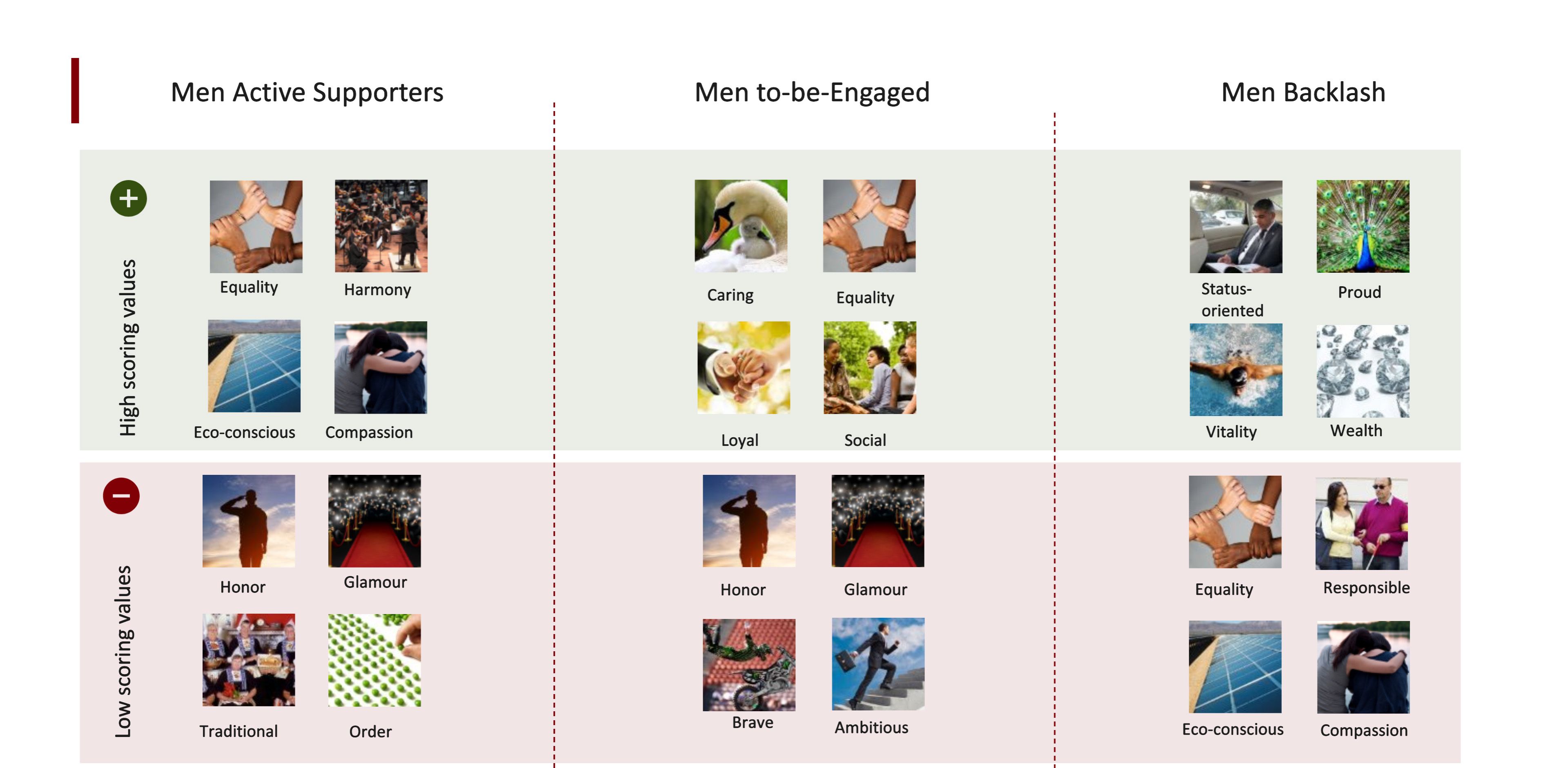
State of Gender Inequality and Role of Men in Helping Achieve It
In light of the International Women’s Day, let us shine light on where the world stands on gender inequality in 2024 and our recommendations on engaging men in the cause to aid the progress.
The state of gender inequality: women having less job opportunities, feeling unsafe and increasingly experience violence
According to the latest research across 39 countries (n=33,866) by WIN (The Worldwide Independent Network of MR) that Glocalities’ sister company Motivaction is part of, the development in gender equality globally is unsettling:
- 46% of women globally do not feel confident or safe when walking alone at night in their neighborhood
- 20% of women globally suffered violence (+4% from 2019)
- 19% of women aged 18-24 have been a victim of sexual harassment
- 44% of the global population still believe that women have fewer job opportunities than men
- There are almost double amount of men who believe that gender equality has been achieved at work (36% vs 20% of women) and politics (21% vs 13% of women).
According to The Sustainable Development Goals Report 2023 by UN DESA:
- Around 2.4 billion women of working age are not afforded equal economic opportunity. Nearly 2.4 Billion Women Globally Don’t Have Same Economic Rights as Men
- 178 countries maintain legal barriers that prevent women’s full economic participation. Nearly 2.4 Billion Women Globally Don’t Have Same Economic Rights as Men
- In many areas, progress has been too slow. At the current rate, it will take an estimated 300 years to end child marriage, 286 years to close gaps in legal protection and remove discriminatory laws, 140 years for women to be represented equally in positions of power and leadership in the workplace, and 47 years to achieve equal representation in national parliaments.
What is striking is not only the dire state of gender inequality, but also that the false belief that gender has been achieved is held by a large group (36%) of men. This bears the question how men can be more involved in achieving gender equality.
Data-fueled insights on men’s role in combatting gender inequality at work by Glocalities
The figures mentioned above are disheartening, and also reveal the pressing need of finding ways to combat these persistent gender inequalities. So how can progress again be achieved, for example in the field of work?
Glocalities did an international study on gender inequality at work in 2022 (see below for the link to the report) where one of the findings was how important it is to get men on board, and not to treat gender inequality as a women’s issue for women only to solve. Women want more men to become part of the solution.
The Glocalities study showed that the way the support systems function right now, they automatically provide more support for men instead of supporting women. This is mainly because mentorship and peer support is very gender-biased, especially among men, and there are more men in power to begin with to grant that support.
In the study women also reported struggling breaking into men’s networks or ‘boys’ clubs’. This means that to level the playing field we need to create additional support structures for women. These structures can be run by women who often feel responsibility to lift each other up and are already more likely to mentor each other. However, it is of vital importance to also bring men into the solution structures. This is a unique aspect of the Glocalities study, distinguishing 3 key groups of men to focus on in different ways:
- Men Active Supporters: Men that are active supporters are confident, ambitious and compassionate group with low ties to tradition - who don’t see advance of women as a threat to their personal careers.
- Men Backlash: On the other hand, men in the backlash of gender-inclusive leadership believe that men are natural leaders but are themselves insecure in their own ability to lead – it is difficult for them to imagine the struggles women experience. This is the hardest group to reach and this group tends to stand in the way of achieving gender equality most.
- Men to-be Engaged: However, men that are passive supporters (aka they support the cause but are not actively engaged in it), do believe men not recognizing women’s abilities is a key problem, but they also see fewer benefits of involving men in the conversation. Therefore, it is important to help them link those two concepts and help them feel the responsibility of being part of the progress which is beyond not harming the cause. This group is especially important because men in the backlash would be more receptive to the advocacy from other men than from women.
Below you find a Glocalities overview of the high and low scoring values among the 3 groups of men from the study.

Source: Glocalities research in 11 countries worldwide (n= 5760), 2022.
The study found that levelling the playfield, building more supportive structures and raising awareness on harmful prejudices via trainings are all part of the solution.
Levelling the playing field will also benefit the world economy, according to a recent study from the World Bank. "Closing the gender gap in employment and entrepreneurship could raise the global gross domestic product by more than 20%," said the World Bank, concluding the 2024 edition of its "Women, Business and the Law" report.
To read the Glocalities report on gender inclusive leadership in full click here: https://glocalities.com/reports/report-overcoming-gender-stereotypes-in-leadership


